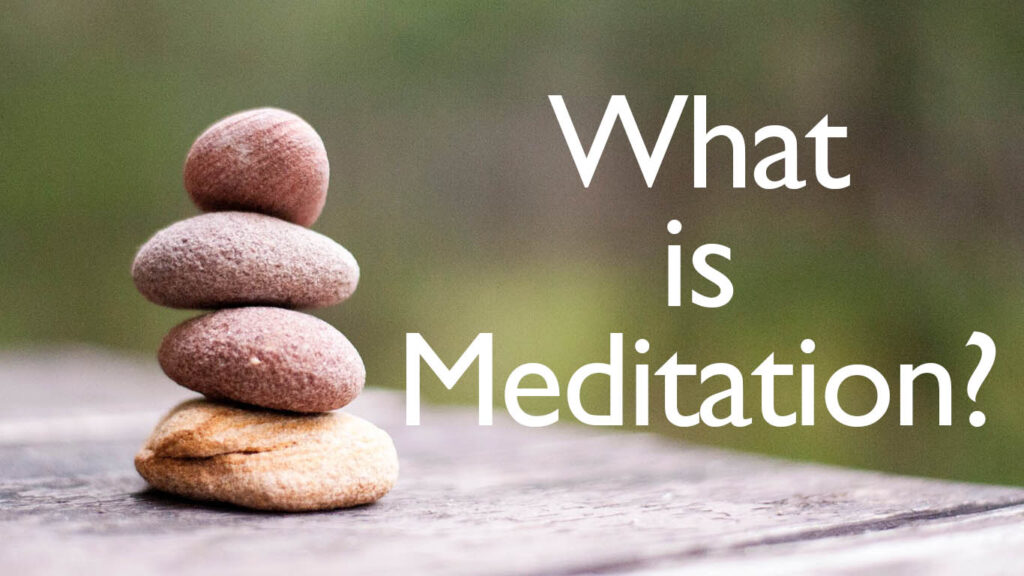Less stress, more memory, better sleep, less pain… Science has endorsed the benefits of meditation for the body and mind. We tell you everything you need to know about this therapeutic practice.
In recent decades, numerous investigations have shown the positive effects of meditating on the body and mind.
Meditation is known to lower cortisol (stress hormone) levels, reduce pain perception, promote quality sleep, and improve emotional well-being.
As you can see, they are all advantages. Start with 10 minutes a day and gain health.
what is meditate
Meditating is about being in a heightened state of awareness and focused attention. To achieve that “peace of mind”, various techniques are used (breathing, visualization, introspection…).
More and more people are spending a few minutes a day meditating. And it is that several studies have shown its benefits for psychological and emotional well-being.
However, meditation has been practiced in cultures around the world for thousands of years. Although it has often been used in religions, it can also be practiced outside of any belief, as a psychotherapeutic technique.
how to meditate
While there are different types of meditation and ways to practice it, learning a basic one can be an important step to start:
- Choose your corner of peace. Make it a quiet place, free from distractions. Switch off the mobile phone. You can play calm and repetitive music, you will find many on digital platforms.
- Mark a time. If you’re a beginner, you’ll find it easier to do shorter sessions to start with, about 5-10 minutes.
- Make yourself comfortable. You can sit cross-legged on the floor or in a chair (as long as you feel you can sit comfortably) for several minutes.
- Focus on the breath. Take deep breaths that expand your abdomen and then exhale slowly. Pay attention to how each breath feels to you.
- Observe your thoughts. The goal is not to blank the mind; it will always ramble. When your thoughts leave, try to bring your attention back to your breath.
benefits of meditation
Research has shown that meditation can have positive effects on general health and psychological well-being.
- Reduce stress. Nobel laureate Elizabeth Blackburn found that chronic stress accelerates cellular aging and is associated with many chronic ailments. Meditation prevents the shortening of the telomere (areas that protect DNA and decrease with age).
- Control anxiety. The Massachusetts Hospital found that 8 weeks of mindfulness help reduce anxiety, increase positive self-statements, and cope with stress.
- Promotes emotional health. According to the University of North Carolina, people who practice meditation experience fewer negative thoughts when viewing harsh images.
- Improves self-awareness. Some forms of meditation can help develop a stronger understanding of yourself, helping you build the best version of yourself.
- Greater attention Mindfulness is like lifting weights for your ability to focus. Meditation helps increase the strength and endurance of your attention.
- Reduces memory loss. The Alzheimer’s Research Foundation (USA) demonstrated how Kirtan Kriya meditation improves neuropsychological performance.
- Generate kindness. Loving-kindness (or Metta) meditation helps to develop and extend emotions such as compassion and forgiveness towards oneself and others.
- Help fight addictions. The mental discipline that meditation develops can help break dependencies by increasing self-control and managing impulses.
- Promotes sleep. Meditating helps to redirect the racing thoughts of insomnia, and to relax the body, favoring a state of peace in which you can fall asleep.
- Helps withstand pain. According to the RAND entity (USA), meditation can reduce pain, improve quality of life and reduce sadness in people with chronic pain.
- Lowers blood pressure. Meditation appears to control blood pressure by relaxing nerve signals, blood vessel tension, and the stress response.
- Where and when you want. Most of the different types of meditation do not require specific equipment or space. In addition, they can be practiced in just a few minutes a day.
As you can see, meditation is something we can all do to improve our physical and emotional health. In fact, you can do it anywhere and start right now.
Try a meditation style that suits your goals and you’ll see how your quality of life improves, even if you only have a few minutes a day.

